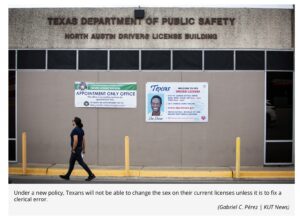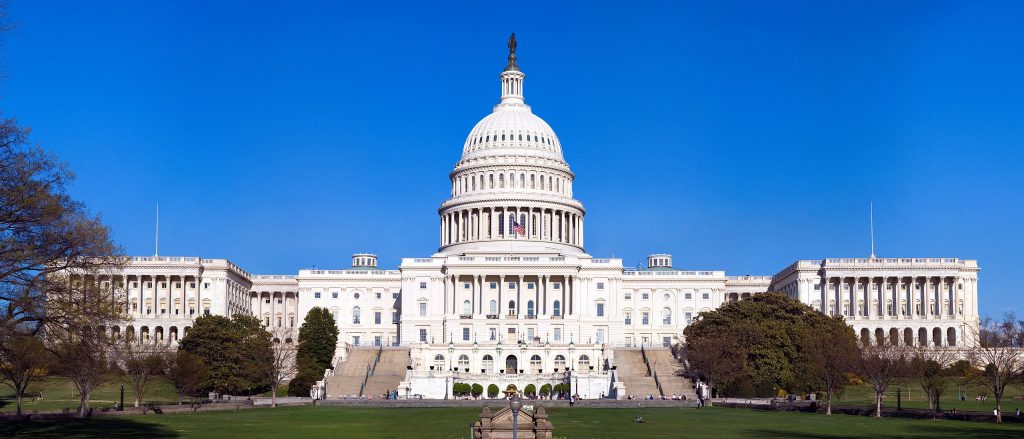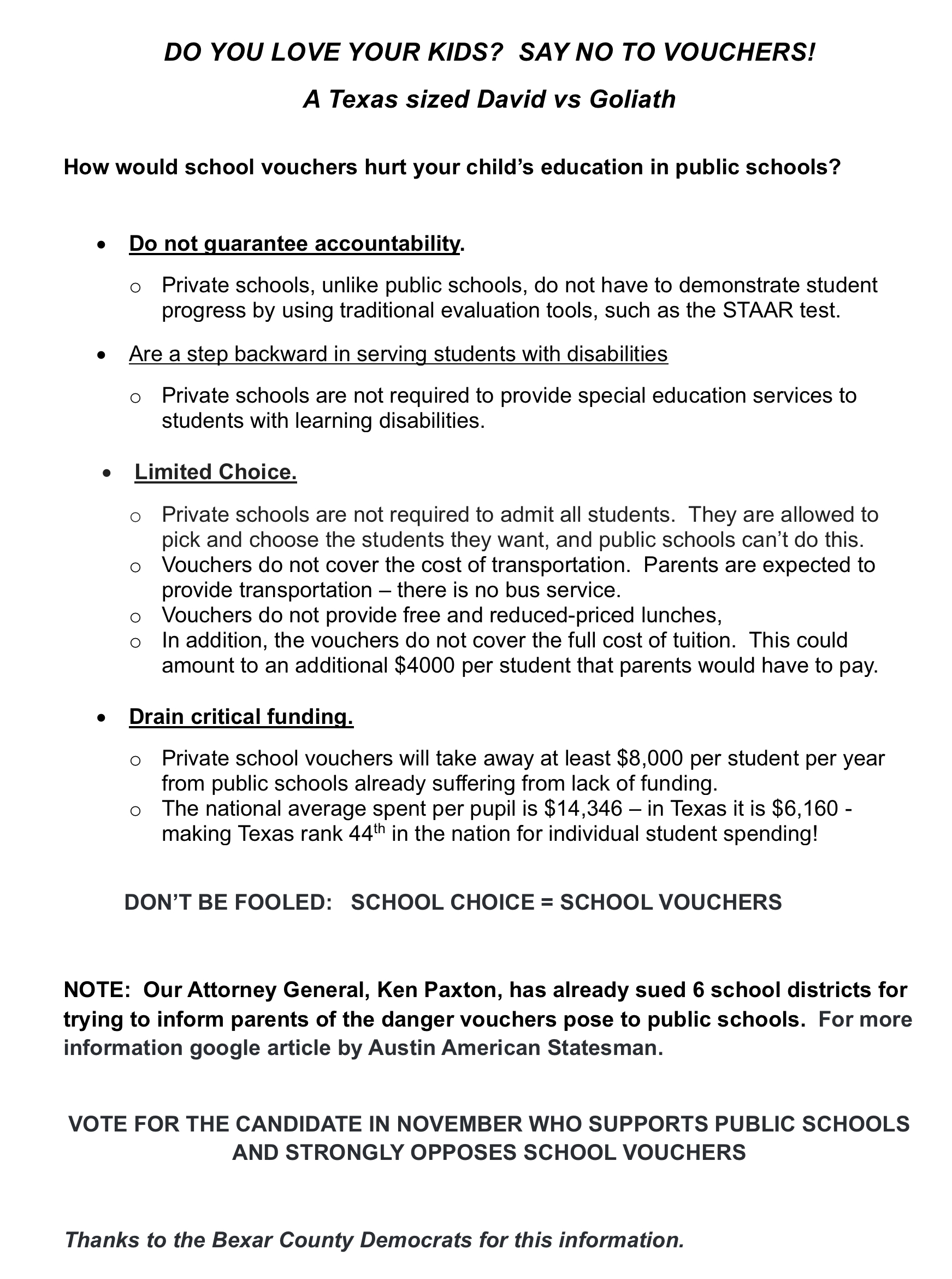Please help us keep this page updated by sending information/links to galvisledems@gmail.com
So many local, county, state and national political actions and decision do not reach us through our daily news headlines. GID is committed to keeping you informed of those events that go against OUR DEMOCRATIC VALUES.

New policy blocks transgender Texans from changing sex on driver’s licenses | Houston Public Media
Imagine if you can not get an ID or drivers license that describes who you are, not just voting, but opening a bank account, applying for housing, school on & on.
Information Links
News Articles

Each June, we look to the Supreme Court to make dozens of decisions on the cases they have agreed to hear. Together, the nine justices evaluate the cases based on their interpretations of the Constitution.
In 2022, the Supreme Court overturned Roe v. Wade, ending the Constitutional freedom to abortion. In 2023, the Court ended affirmative action in colleges and universities and ruled that the Biden administration’s $10,000 student loan relief program could not go forward.
These decisions affect all of us, and that’s why this year — and every year — it’s imperative we pay attention to the highest court in the land. We also must remember that who we elect in 2024 will have a huge effect on the Supreme Court, including future justice appointments.
When Trump was in office in 2016, he appointed three justices who played significant roles in decisions like the ones mentioned above. But what he didn’t understand is that when it comes to our freedoms, women don’t play. That’s why, in 2020 and 2022, women voters showed up at the ballot box and refused to let power-hungry politicians continue to chip away at our freedoms.
This year, we must continue to hold our leaders accountable. Despite how frustrating it may be, we must stay civically engaged to demand better for this country because we deserve better. To assist you with that, we’re tracking several Supreme Court cases that could have significant implications on our daily lives. Here are some key cases to watch:
1️⃣Food and Drug Administration (FDA) v. Alliance for Hippocratic Medicine (aka the medication abortion case)
What’s the case about? This case is about whether the FDA (the government agency that approves drugs) should keep its approval of mifepristone, a pill used for abortions, based on claims that the approval process wasn’t done properly.
Mifepristone has been used since 2000 to help end early pregnancies safely and effectively, especially when combined with another drug called misoprostol. A group called the Alliance for Hippocratic Medicine argues that the FDA didn’t do enough to check if mifepristone is safe when they approved it. They also don’t agree with the FDA allowing the pill to be prescribed through telemedicine (over the phone or internet).
Why does this matter? If the court sides with the challengers, it could limit or eliminate options for medical abortions regardless of where you live. In addition, this case might change how much power the FDA has in approving and regulating drugs — meaning it may make access to a number of medications more difficult. A ruling against the FDA’s telemedicine policies could make it harder for people, especially in rural areas, to get medical abortions.
2️⃣Moyle v. United States (aka the EMTALA case)
What’s the case about? This case is about whether a federal law that requires emergency rooms to provide stabilizing care to all patients overrides a state law in Idaho that imposes a ban on abortion.
The federal law in question is the Emergency Medical Treatment and Labor Act (EMTALA), which ensures emergency rooms provide care to stabilize any patient with an emergency medical condition. Idaho has a ban on abortion, which significantly limits the circumstances under which an abortion can be legally performed. The case arose when a hospital in Idaho faced a dilemma: following EMTALA would require them to provide emergency abortion care, but doing so would violate Idaho’s state law.
Why does this matter? The decision could affect how hospitals across the country provide emergency medical care, especially in states with strict abortion laws. In addition, this case will test the boundaries of state and federal powers, particularly whether federal requirements can override state-imposed restrictions. The outcome could affect reproductive freedoms and access to abortion services, particularly in emergency situations.
3️⃣Alexander v. South Carolina State Conference of the N.A.A.C.P.
What’s the case about? This case revolves around allegations of racial gerrymandering in South Carolina’s congressional redistricting plan. The Supreme Court had to decide if the state’s redistricting map unfairly diluted the voting power of Black voters.
After the 2020 Census, South Carolina redrew its congressional districts. The South Carolina State Conference of the N.A.A.C.P. argued that the new map was drawn in a way that reduced the influence of Black voters, violating the Equal Protection Clause of the Fourteenth Amendment. The case made its way to the Supreme Court to determine if the redistricting constituted racial gerrymandering.
On June 23, the Supreme Court ruled in favor of the state, determining that the redistricting map did not unlawfully dilute the power of Black voters. This decision dismantles previous protections against racial gerrymandering by establishing a new standard for evaluating such claims.
Why does this matter? The decision has significant implications for the freedom to vote, as it sets a new standard for what constitutes racial gerrymandering. By upholding the South Carolina map, the Court has effectively altered the legal framework for future redistricting cases involving racial considerations. This ruling will likely influence how states draw their district maps, potentially affecting the balance of political power.
I want to encourage you to remember that women voters, by electing leaders who can nominate new court appointments, have and will continue to play a critical part in shaping the Supreme Court for years to come. Contributed by: Jara Butler, Chief Impact Officer, SUPERMAJORITY



